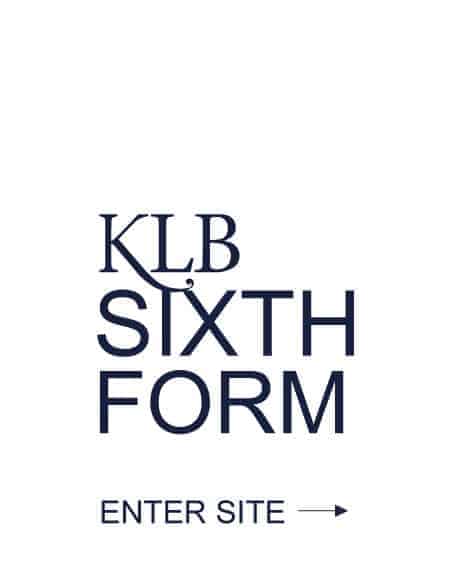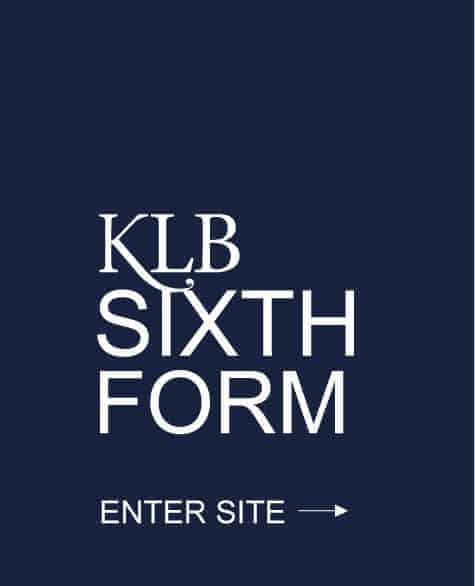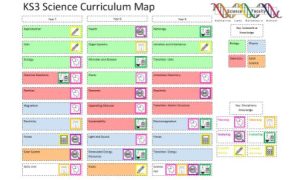Our Vision
Science is all about understanding how the Universe works. As pupils move through the school they will gain both the Disciplinary and Substantive knowledge (as amplified in the table below) that allows them to question the world around them. Enjoyment and engagement are fundamental to our approach as Science has so much to offer in terms of developing the analytical thinking and manipulative skills of pupils. The ability to handle equipment safely, to work in teams and to interpret real data are important skills for the future. We are thrilled and proud of our recently refurbished teaching facility with new and innovative designs for laboratories and preparatory rooms.
| Science knowledge | ||||||||
|
Substantive knowledge |
Disciplinary knowledge |
Literacy and Numeracy for Science | ||||||
| Biology | Chemistry | Physics | Earth Science | Planning | Obtaining | Analysing | Evaluating | |
Key Stage 3
At Key Stage 3, pupils follow a Science course combining “Disciplinary Skill” and “Substantive Topic” knowledge. The disciplinary skills involved in scientific enquiry are embedded within subject content topics from Earth Science, Biology, Chemistry and Physics. The main skills have been broadly grouped into four areas and are revisited multiple times through the course.
The key skill areas are:
- Planning – designing working experiments, developing ideas, hypothesis and questioning, working with variables and writing scientific methods.
- Obtaining – completing experiments to gain results, choosing and manipulating equipment.
- Analysing – Looking at collected results, presenting tables and graphs, mathematical analysis, pattern identification and conclusions. Presenting scientific findings.
- Evaluating – critically assessing the quality of evidence and validity of conclusions. Suggesting improvements, comparing with historical theories and the development of scientific ideas.
The pacing sheets below detail subject topics, assessment dates and skill focus areas.
Key Stage 4
At Key Stage 4, students take either the Combined Science GCSE course (equivalent to two full GCSE subjects) or the three separate courses in Biology, Chemistry and Physics.
To support students there are many resources available via the school network link. These include:
- a full bank of past paper exam questions and mark-schemes divided by topic
- revision plans for summer and mock exams.
- revision resources and scaffolds.
- exam board specifications and useful skills documents.
Examination board (AQA) web pages:
Key Stage 5
This year there were be 103 student entries at A-level in a science, which reflects the success, skill and enthusiasm of the Science learning environment. There are over 50 students on each of the currently offered A-Levels:
- Biology – following the OCR Biology ‘A’ Specification H420
- Chemistry – following the OCR Chemistry ‘A’ Specification H432
- Physics – following the OCR – Advancing Physics ‘B’ Specification H557.
A-Level Biology
A-Level Biology attracts those that are interested in the living world and how organisms function and survive. The OCR course emphasises the way in which scientists work and explores many real-world applications of biology – past, present and future. An integral part of the Year 13 course is fieldwork. The students are encouraged to attend a residential course during the summer term of year 12 in order to develop understanding of ecology, biodiversity and conservation, ecological investigation techniques, statistical analysis and data interpretation skills. As well as gaining an A Level qualification from the course, students also work towards gaining Practical Competency, a separately reported qualification based on a student’s practical skills.
Biology A-Level can be used as an entry qualification for a variety of courses at higher education. Students from the school regularly go on to study medicine, veterinary sciences, zoology, ecology and biological sciences, as well as going straight into industry via apprenticeships.
- OCR Biology A Specification official page: following the OCR Biology “A” Specification H420
A-Level Chemistry
Chemistry is the science of matter. In A-Level Chemistry, students will study the relationship between the structure and properties of materials and how materials interact with each other. The OCR Chemistry A course is organised into six modules that allows students to deepen their understanding of some areas and introduces new techniques and areas of study. Throughout the course students develop their practical competency, leading to a supplemental qualification, the Practical Endorsement in Chemistry, awarded to students who successfully develop all twelve competency skills.
- OCR Chemistry A Specification official page: following the OCR Chemistry “A” Specification H432
To enhance the study of chemistry, we regularly attend the Bristol University Christmas Chemistry Conference and students have the opportunity to visit the chemical analysis facilities at Bristol University in Year 13.
Chemistry A-Level can be used as a stepping-stone for a number of university courses. Students from KLB often go on to study Medicine, Natural Sciences, Chemistry, Chemical Engineering, and many other disciplines. Chemists are employed in a number of fields including developing new medicines, environmental protection, development of new foods and the petrochemical industry.
- RSC Chemistry Careers (http://www.rsc.org/careers/future/your-future-chemistry)
A-Level Physics
A-Level Physics is a stepping-stone to further your study of a science-based subject at university. It is an extremely versatile qualification and is essential for electronics, engineering and pure sciences and very useful for auxiliary science based subjects, such as medicine.
We are currently witnessing a “Golden age” of Physics with so many advances in Cosmology and Particle Physics. A-level physicists develop an appreciation of these advances and encounter some of the most fundamental questions in science. The A level syllabus is a concept based course which includes the modern ideas of Quantum Theory and Cosmology as well as the classical theories of Galileo and Newton. The science of the digital era (nanotechnology and quantum computers) is also a theme that runs through the course.
Enrichment opportunities include a trip to CERN in Geneva for sixth form students and the opportunity to partake in the Engineering Education Scheme.
- OCR Physics A Specification official page: following the OCR – Physics A – Specification H556
Extracurricular Enrichment:
The Science department offers a wide variety of extracurricular enrichment with opportunities at each Key stage. In the past years, these have included in school STEM (Science, Technology, Engineering and Mathematics) workshops. We are grateful for support from a variety of companies both locally and from the wider region. Also the weekly Year 7 Science club and Year 9 Fame Lab competition. There are annual Natural History Photographic Competitions linked to the house system. Bath University Chemistry Department visit school with their – spectroscopy in a suitcase sessions and the Royal Society of Chemistry and Bristol University have delivered amazing live demonstration shows.
Pupils have been very successful annually in the Physics and Chemistry A-Level Olympiads. More recently, success has been seen in the European Solar Telescope Competition and a new link with the European Space Agency CANSAT Competition established.
There have also been a number of off site visits including: Bristol Zoo, the London Natural History Museum, and to Science Live! – the KS4 conference with inspirational speakers and GCSE advice.
For A-Level students specifically we have also visited the London Hunterian Royal College of Surgeons Museum and run regular visits to the Bristol University Biological Sciences Neurology and Chemistry departments. The annual highlights at A-Level also include the amazing residential Biology Ecology Field Course on the Gower Peninsula Swansea and the equally amazing Physics trip to CERN Switzerland.



